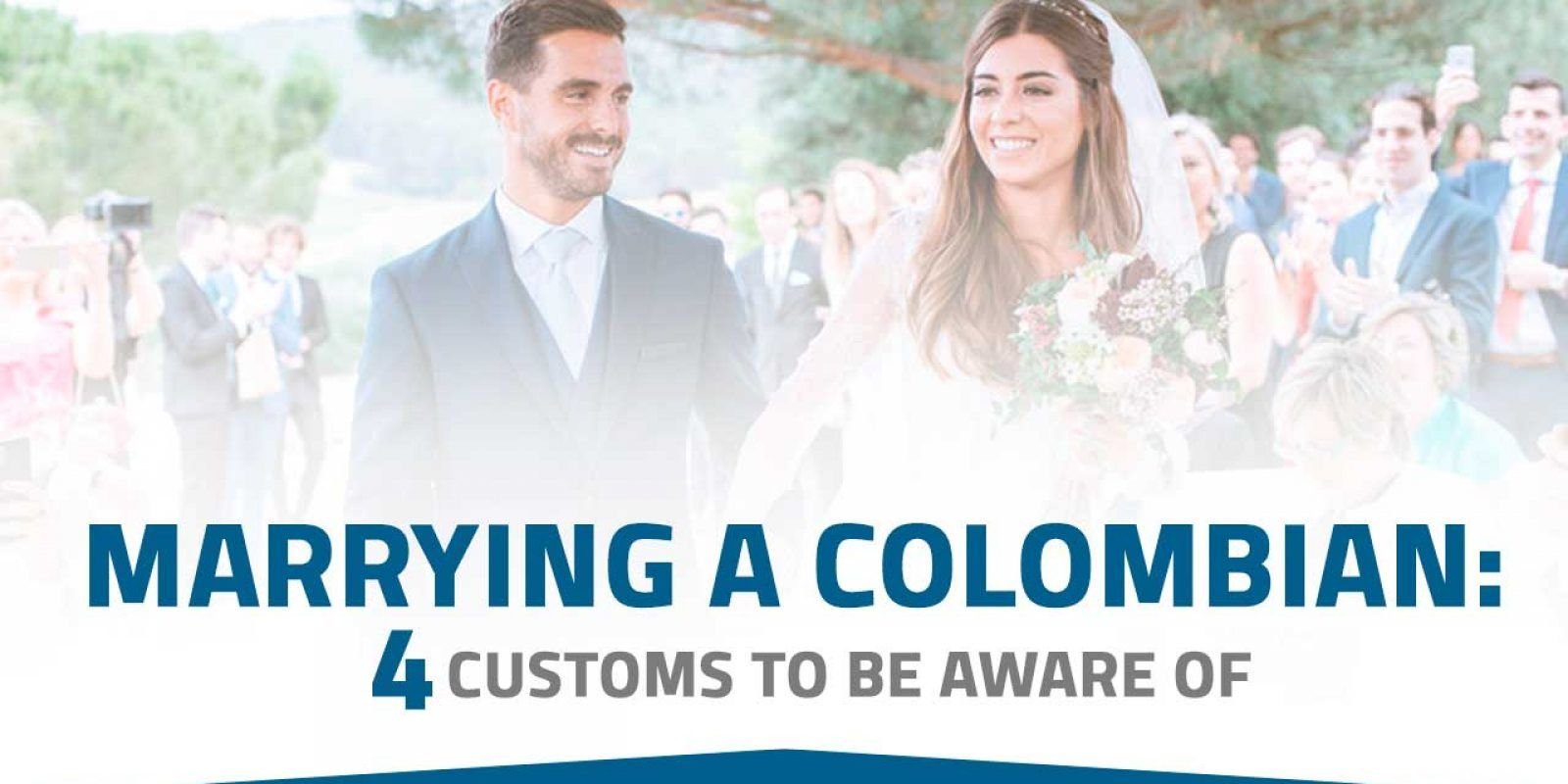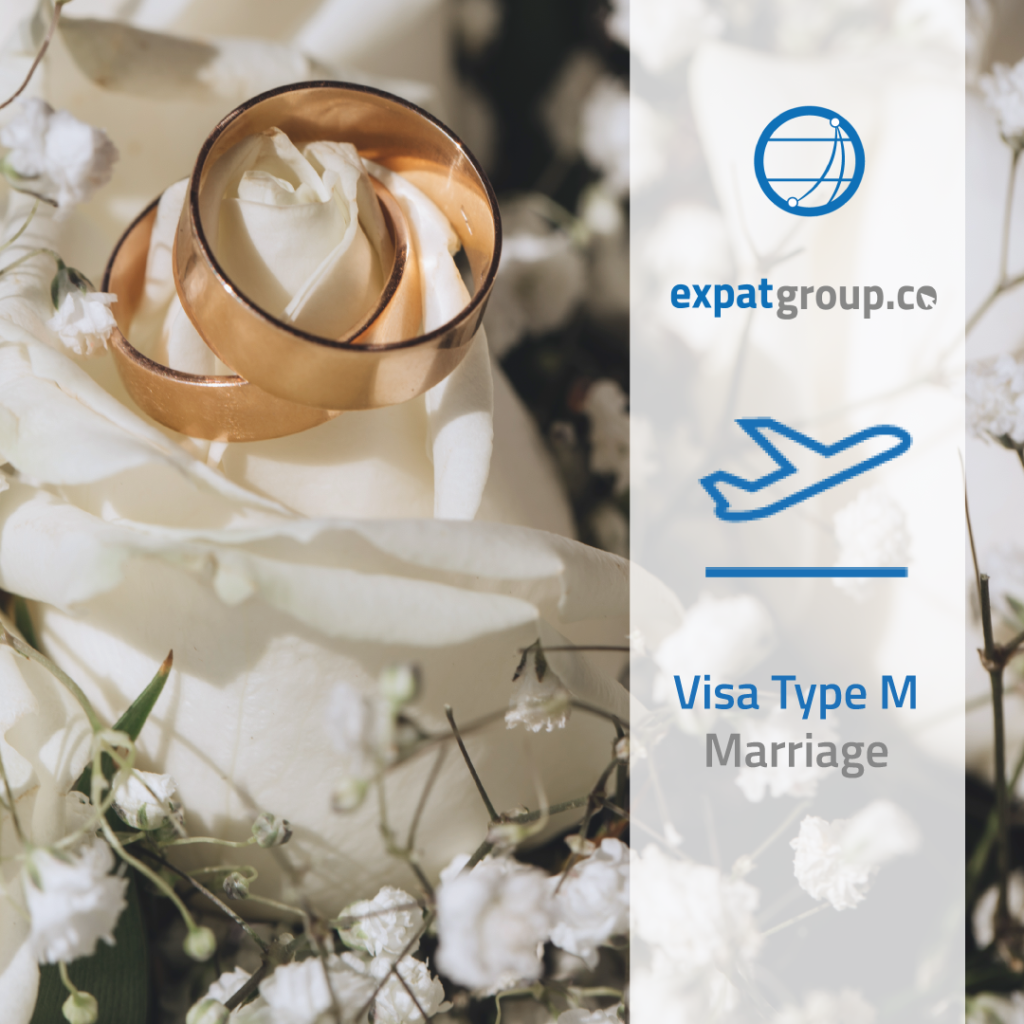A Colombian marriage is usually met with fanfare and celebration. As a country full of passion and life, Colombia’s people are as romantic as they are fiery regarding their life partners.
If you’re a foreigner marrying a Colombian, the exchange of culture and tradition should be a thing of joy. But this doesn’t mean that it’s without its challenges.
When you’re in a relationship with someone, you’ll likely learn most of their habits, likes, and dislikes before you’ve got down on one knee. However, it’s easy to miss some different cultural characteristics, especially if there’s a language barrier at play.
With this in mind, we will explore some Colombian customs – wonderful or otherwise – to know about before you’ve reached the wedding day.
1. Colombians are passionate
The Latin fire is not a simple cliché used to describe Colombians. They are people of intensity, which makes them so magnetic.
Of course, some Colombians are more reserved than others, but their desire to live life bleeds through all the same. Whether it’s politics, football or a game of Parqués, Colombians immerse themselves in to the things that give them the most pleasure. And these interests can manifest themselves in interesting ways.
On the one hand, you’ve got the pleasure of being around someone that’s captivating. Their excitement for a subject or activity endears them to you profoundly, and you can’t help but want to be around them.
Conversely, this intensity can provoke negative reactions of the same magnitude. Being an impassioned person means that discontent can seem more extreme than it actually is. This can make arguments seem more severe from your perspective than they do for your Colombian other half, causing a complicated asymmetry between you.
In any case, it’s important to explore these differences in communication together, empathise with the other’s feelings, and come to a reasonable compromise about how to deal with difficult situations.
¿Are you planning to get married in Colombia?
If you want to get married to your partner from Colombia and need help with the M-type Marriage Visa or the Domestic Partnership Visa application process? expatgroup.co has assisted many individuals in navigating this process smoothly. We can provide you with the necessary support. Schedule an appointment with us today to learn more.
2. Most Colombians have strong family bonds
Family is everything in Colombia. Many occasions, like Sunday dinner or going out on the weekends are done so with the whole family, and the value placed on spending this time together is significant.
On the whole, it’s a wonderful quality to have in a partner. Colombians’ loyalty to their families makes them role models for many families in the Western world, not just for the community it brings but for the love that is shared. This sense of being part of your Colombian spouse’s family is powerful, and should be something that’s celebrated.
There can be, however, complications to your plans with your Colombian partner as a result of this. Plans to spend time as a couple are sometimes compromised by the inclusion of other family members, complicating arrangements between foreigners and their Colombian spouse.
Family comes first can also mean a restriction on your long-term relationship goals. If your plan, for instance, is to eventually move abroad as a couple, your Colombian other half may feel the need of being close to their family (geographically speaking) the decisive factor.
Ultimately, the most crucial thing is to be clear about intentions and how time is spent together and with others. If you get a visa and your cédula de extranjería, you’ll be allowed to stay in Colombia and also, travel to your hometown without loosing your stay permit.
Download the OFFICIAL guide to request your Cédula de Extranjería
3. Many Colombians still adhere to ‘typical gender roles’
Much like dating a Colombian, marrying a Colombian can come with certain traditions regarding gender roles.
Men in a heterosexual relationship, for instance, are expected to be the primary earner, whereas the woman is seen as the primary caregivers to children (if there are any). Furthermore, it’s not uncommon for men to pay for holidays, dinners, and social events. Likewise, women are expected to dress and act ‘femininely’.
While Colombian baby boomers and gen-x are more likely to follow this strictly, Colombians of all ages consider diversions from these roles fairly abnormal. The culture of machismo or being a ‘masculine man’ perpetuates this attitude, and rightly or wrongly, many Colombians view men’s and women’s roles in a relationship as non-negotiable.
It’s key to how you view your position and your Colombian partner’s position before marrying. You can try getting a Common-Law Marriage first, before a permanent desicion.
The Domestic Partnership
is recognized for grant the MType Marriage Visas by the Ministry of Foreign Affairs.
4. Colombians communicate indirectly
An interesting aspect of interacting with your Colombian other half is not only in what they say but what they don’t. Colombians love using their body to communicate and do so surprisingly regularly.
The most common example is when Colombians use their mouth to indicate who the subject of conversation is without saying their name. Funny at first, this is often something that you end up using yourself as a communication tool.
Additionally, Colombians tap their neck with their middle or index finger to show that there is or would be a problem with something. Known in Colombian Spanish as paila, this non-verbal communication is a colloquial way of saying you’re screwed and is generally considered playful and light-hearted. If you see your Colombian partner doing this, you know they’re talking about something with potential deep trouble afoot.
FAQs about Marrying a Colombian
You can meet Colombians interested in establishing a serious relationship through various options. Some suggestions include:
- Dating websites: Numerous dating websites and applications allow you to find people with similar interests in finding a serious partner. Some of these sites allow you to search specifically by nationality, which could make it easier to find Colombians interested in a serious relationship.
- Social events and activities: Participate in cultural events, expatriate gatherings, or activities related to the Colombian community in your area. This will give you the opportunity to meet Colombians in person and establish meaningful connections.
- Language classes or cultural exchange groups: Attend Spanish classes or join cultural exchange groups where you can meet Colombian native speakers. These settings provide a natural opportunity to meet people and build relationships.
- Social networking and online communities: Join social networking groups or online forums dedicated to Colombian culture or people interested in finding serious relationships. Participating in these communities will allow you to connect with people with similar interests.
Always remember to be cautious when meeting people online and take appropriate safety precautions when meeting in person.
Yes, you can obtain a residence visa if you are married to a Colombian citizen. This visa is specifically designed for foreigners who are in a marital relationship with a Colombian citizen and wish to live together with their Colombian spouse in the country. Additionally, this visa permits you to accumulate time to obtain a Resident Visa.
In Colombia, several marriage options are available, including civil marriage, religious marriage, and common-law marriage. Civil marriage is legally recognized and conducted before a state official, such as a notary or a judge. A Religious leader performs religious marriage and holds legal validity if registered with civil authorities afterward. On the other hand, common-law marriage is a cohabitation without a formal contract. Still, it can be legally recognized after a certain period of continuous cohabitation through a judicial process. Each option has specific requirements and procedures that must be followed for legal recognition in Colombia.
Fidelity is an individual trait and can vary widely among people, regardless of their nationality. It’s not possible to generalize about the fidelity of all Colombians or any other group of people. Like in any society, there are Colombians who value fidelity in their personal relationships, while others may have different perspectives. Fidelity in a relationship depends on various factors such as personal values, life experiences, and individual circumstances.
To obtain a cédula (national identification card) after marrying a Colombian, you need to ensure your marriage is legally recognized in Colombia, apply for a residence visa as the spouse of a Colombian citizen by submitting required documents like your marriage certificate and passport to the Colombian consulate or embassy, and once your visa is approved, register with the Colombian authorities and apply for your cédula at the nearest Registraduría Nacional del Estado Civil (National Civil Registry) office.
- Passport: Original valid passport with at least 2 blank pages and 6 months of validity.
- Digital photo: 1 digital photo 3 x 4 cm white background without accessories. Physical/printed photos are not accepted.
- Marriage: Civil Registry of Marriage COLOMBIANO* updated.
- Cédula de Ciudadanía: Copy of the Colombian national’s identity card.
- Letter of request: Application letter signed by the Colombian and power of attorney duly authenticated.
- Evidence: Supports that demonstrate the veracity and antiquity of the relationship.
- Migratory movements: Certificate of Migratory Movements of both.
Do you want to get the step-by-step guide to apply for your Cédula de Extranjería?
At expatgroup.co, we know that it is essential to have everything in order so that you can access all the benefits as a foreigner in Colombia. Therefore, we invite you to fill in your information to obtain the step-by-step guide to apply for your Cédula de Extranjería.

Why should I use expatgroup.co services?
expatgroup.co visa service
- Includes consulting
- Migratory Movements.
- Visa application and follow-up.





That applies to some Colombians, not «Colombians» in general. Like people from any country, the way you express yourself and the way you react to different situations, is base on your level of education and emotional intelligence.
Good article, very informative. Thanks.
I have been married to a Colombian for 18 years this year – best decision of my life. With that said, this article is spot on. There is also one other item for foreigners to be aware, when my wife and I married, we lived in the US. When she lived in Colombia, her income went into the family ‘pot’ so to speak. This meant that there was a loss in income for the family when she left. We have sent money back to Colombia every month to her family since we married. To some, this may be a deal breaker. For me, I understood it, we discussed it thoroughly before we married and we both agreed to parameters. The other complicating factor is the guilt that my wife felt for leaving her family and living a better life here than her family was living in Colombia. By better life, I mean financially speaking. I would argue that her family lives a better life in Colombia than most people in the US live using happiness as a measure. The good consequence of all of this is that I have become far less attached to money and I would do anything to really help her family. They have it right … family IS everything.
Thank you very much for sharing your personal experience. It is totally true in Colombia, and many parts of Latin America we are motivated by family, and we are always rooted in it. Best regards
Diana Gomez:
Muy cierto y especial para nosotros los africanos también / Very true and special for we Africans also. Family and social life everyday is part and parcel our lives inAfrica, South America and South Eastasia.
Good afternoon, Godfrey. Thanks a lot for interacting with our blog. We are glad to provide useful information. We hope you have a great day!
Es verdad Steve. I am from Africa and I feel the same way your wife feels for her family back in Colombia. I moved to Sweden at the age of 25. Africans, South Americans and Asians have this vert strong family bond: something that people in the West do not understand because they have not lived it. I congratulate you for having respected and accepted the culture of your wife. Marriage is about compromise. I wish you and your family all the best. All the 4 custos mentioned here above apply to we Africans too.
I was married to two Colombian women.. this is spot on.. I refused to send money as it eroded my standard of living.. it felt like I had a subscription bride./ she split after 2 years back to Colombia and under mamas roof.. all of her 7 sisters all the same and for the same reason..
Not all Colombians are like this but some are:
1) Colombians are passionate, it does not matter really because it does not last forever, it fades away as the years of marriage increases.
2) strong family bonds, unfortunately it is true and bad sometimes because they allow their parents into the relationship. They follow the
advice of their parents and share most of what is going on in your marriage with them. It gets worse when they let their parents move in
with you and they will find and excuse to make that decision valid.
3) adhere to gender roles, I wish that were true for everything, my colombian wife works very hard but she does not wash dishes, does not clean
the house. Instead, she hires a maid every two weeks to clean the house. I also work hard but do wash the dishes whenever possible.
4) communicating indirectly- I have never noticed that they use their body language to communicate something. What I do know is that they gossip
a lot and when you are present they pretend to appreciate you…